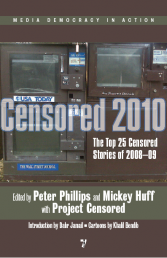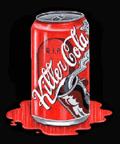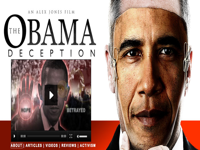Posts Tagged ‘china’
It’s quite incredible that there are people dying in the world and nobody makes something, nobody says something. The great authorities in the world like US president, the pope, Russia president, ONU, are looking minorities which are disappearing.
Catholics say nothing because they want to build a good friendship with China and they are too busy to try to handle political elections in Italy.
USA and Russia have nothing to fight for: no oil, no gas, no gold, so these aren’t their war. But in the world there are minorities like tibetans in China, Chechens in the North Caucasus region, kosovars in the Balkans which are disappearing under tortures, bombs, in silence. We want to dedicate some words to this people.
United nations is a fake: like in Iraq, if they wanted to stop the violence they would have done it; it’s quite evident that they don’t care of ALL people in the world. The next minority could be your people.
03/18/2008 14:27
TIBET – CHINA
Source: AsiaNews
Rome (AsiaNews) – Although denied by Beijing, the violent repression of the demonstrators and Tibetan monks is illustrated by a series of particularly violent photos, sent to the West by Tibetan dissidents. These are particularly harsh images, sent from the monastery of Kirti to the Free Tibet Campaign.
The photos were taken last March 16, in the autonomous Tibetan province of Amdo, which currently is part of the northern Chinese province of Sichuan. According to the Free Tibet Campaign, the massacre began after the religious of the monastery of Kirti chanted slogans in favour of “free Tibet” and the Dalai Lama. The monks were joined by 400 Buddhist nuns and the students of the local Tibetan middle school.
The Chinese police, which had been watching the monastery since the beginning of the protests (last March 10), opened fire on the crowd. According to information from the Tibetan government in exile, about 20,000 Tibetans of Sichuan have protested in solidarity with the Tibetan monks. Of the 20 certified victims of the repression, 9 have been identified: among these are young men of 15 and 17 years old.
Kosovo riots ‘were orchestrated’
Tuesday, 18 March 2008, 19:08 GMT
Source: BBC
Ihor Kinal, 25, was fatally wounded on Monday by shrapnel from a hand grenade.
Deputy head of mission Larry Rossin told reporters that some of the comments from Serbia’s Kosovo minister in Mitrovica were “objectionable”.
He also said: “It is clear to us that the violence… was orchestrated. We believe we know who was responsible”.
The trouble broke out when UN police wrested control of a courthouse in the divided town from Kosovo Serbs who had seized it days earlier.
More than 130 people were hurt in the trouble that followed, both protesters and international forces.
Rocks, hand grenades and petrol bombs were hurled at UN officers and Nato troops fired back.
Nato’s K-For force maintains it fired only in the air.
The UN official said he had asked Serbian minister Slobodan Samardzic to use his influence so that the international forces would not have to remove the protesters by force.
But, he said, nothing had happened.
“We’ve never had what we would consider a clear and unambiguous denunciation of this kind of violence from the ministers,” he said.
There have been regular protests in Mitrovica since Kosovo declared independence from Serbia last month but Monday’s trouble was the worst so far.
Police commissioner Larry Wilson told a news conference that, because of the gunfire that erupted after the UN moved in, emergency services had been unable to reach the Ukrainian officer and he had bled to death.
Kosovo Prime Minister Hashim Thaci told reporters in Pristina: “We are very sad. The Kosovo institutions and government send condolences to the family and to his country.”
Although tensions were high in Mitrovica on Tuesday, Nato peacekeepers were in control of the main flashpoints in an attempt to prevent a repeat of the previous day’s violence.
French soldiers fired a stun grenade when Serbs began throwing stones. The protesters were described as high-school students.
Bridges over the Ibar river that divides the Serb north from the ethnic Albanian south were closed.
 china, Human-Rights, massacres, revolutions, tibet, kosovo, serbia, war, civil-war
china, Human-Rights, massacres, revolutions, tibet, kosovo, serbia, war, civil-war
Campaign to Stop Killer Coke Update
Coke Shareholders’ Meeting Mobilization — Proxies Needed!March 13, 2008 Stop Killer Coke Newsletter
Contents of This Newsletter
1. Mobilization for Coca-Cola’s Annual Shareholders Meeting
We are calling on all our supporters to mobilize for Coca-Cola’s annual shareholders’ meeting, which will be held on Wednesday, April 16th, starting at 10:30 a.m. The meeting is being held at the Hotel DuPont in Wilmington, Delaware, the site of the last four annual meetings.
The annual meeting is the only place one can challenge face-to-face the chief policy-makers of the company — the top executives and board of directors. By having a strong presence inside and outside the meeting, we continue to serve a warning to the stockholders, creditors and other potential investors that they will be held accountable for the irresponsible actions of this company.
The Campaign to Stop Killer Coke is working with individuals, other organizations and stockholders to hold Coke accountable for its serious labor, human rights, health and environmental abuses. If you or your organization would like to participate in or help mobilize for activity around the annual meeting, contact us at (718) 852-2808 or e-mail us at StopKillerCoke!@aol.com.
Coke’s abuses on a worldwide scale include:
stopping the United Nations’ International Labor Organization from “examining violations of workplace rights in Colombia” (Sydney Morning Herald, 6/6/07);
overexploitation and pollution of water sources in India, Mexico, Ghana, El Salvador and elsewhere;
continuing to operate in the Sudan, ignoring violence in Darfur and paying fines for violating U.S. sanctions;
benefiting from hazardous child labor in sugar cane fields in El Salvador as documented by Human Rights Watch and by the UK’s Channel 4 production, “DISPATCHES: Mark Thomas on Coca-Cola,” first aired nationally in England on November 19, 2007;
aggressive marketing to children of nutritionally worthless and damaging products;
anti-worker and anti-environmental practices worldwide, including reports that The Coca-Cola Co. has been accused of benefiting from prison labor in China;
giving executives hundreds of millions of dollars in stock options and bonuses while laying off thousands of employees and turning other employees into non-employees referred to as “subcontracted or flexible workers” who receive minimal pay and have no job security or future with the company.
history of racial discrimination, fraudulent business practices, tax avoidance and corporate welfare schemes.
Seeking stock proxies from concerned stockholders
Stockholders are now receiving their notice of the annual meeting and proxy card from The Coca-Cola Co. If you are not able to attend the annual meeting and would like to help the Campaign, we would like your proxy assigned to us so that others can attend. You can contact us at (718) 852-2808 or stopkillercoke@aol.com and we will explain how to transfer your proxy. If proxyholders plan to attend the shareholders’ meeting and would like to join protest activities, please contact us.
On this year’s agenda is a shareholders’ resolution submitted by William C. Wardlaw III, owner of 15,205 shares of Common Stock. The Company filed legal papers with the Securities and Exchange Commission in an effort to prevent Mr. Wardlaw’s resolution from appearing on this year’s proxy statement. The SEC disagreed with Coca-Cola’s rationale. Of course, now that it’s on the proxy statement, Coca-Cola has asked shareholders not to support the proposal.
“Shareowner Proposal Regarding a Board Committee on Human Rights (Item 6)
“RESOLVED:
“Shareholders amend the Bylaws, by adding the following new section at the end of Article III:
“Section 4 . Board Committee on Human Rights. There is established a Board Committee on Human Rights, which is created and authorized to review the implications of company policies, above and beyond matters of legal compliance, for the human rights of individuals in the US and worldwide.
“The Board of Directors is authorized in its discretion consistent with these Bylaws, the Articles of Incorporation and applicable law to (1) select the members of the Board Committee on Human Rights, (2) provide said committee with funds for operating expenses, (3) adopt regulations or guidelines to govern said Committee’s operations, (4) empower said Committee to solicit public input and to issue periodic reports to shareholders and the public, at reasonable expense and excluding confidential information, including but not limited to an annual report on the implications of company policies, above and beyond matters of legal compliance for the human rights of individuals in the US and worldwide, and (5) any other measures within the Board’s discretion consistent with these Bylaws and applicable law.
Nothing herein shall restrict the power of the Board of Directors to manage the business and affairs of the company. The Board Committee on Human Rights shall not incur any costs to the company except as authorized by the Board of Directors.
“Supporting Statement:
“The Coca-Cola Company, its bottlers, and suppliers have been associated with human rights controversies, leading to:
“ The Teachers Insurance and Annuity Association-College Retirement Equities Fund (TIAA-CREF) divesting the Coca-Cola Co. stock from and banning further investments in its $9 billion CREF Social Choice Account, the nation’s largest socially screened fund for individual investors.
“ A USA Today “cover story” includes a quote claiming that some 45 colleges and universities removing Coke products from their campuses as a result of alleged human rights violations by its Colombian bottler (10/30/07).
“ BBC News reporting that our company has been accused of benefiting from prison labor in China (5/21/07).
“ A May 2007 report by The International Environmental Law Research Centre accused the company of detrimental impacts on drinking and agricultural water supplies in India, violating human rights.
“In the opinion of the proponents, the company’s existing governance process does not sufficiently elevate human rights issues within the company or serve the interests of shareholders in expediting effective solutions. The proposed Bylaw would establish a Board Committee on Human Rights that could review and make policy recommendations regarding human rights issues raised by the company’s activities and policies.
“In defining ‘human rights,’ proponents suggest that the committee could use the US Bill of Rights and the Universal Declaration of Human Rights as nonbinding benchmarks or reference documents.”
2. Coca-Cola, the China Olympics & Darfur
The Coca-Cola Co. has recently come under criticism due to its involvement as a major sponsor of the 2008 Olympic games in China because China supports the Sudanese government. Director Steven Spielberg quit his post as an artistic adviser of the 2008 Olympics and Mia Farrow linked The Coca-Cola Co. and human rights abuses in Darfur saying: “Tell Coca-Cola you’re switching to Pepsi.” Farrow says the government of Sudan, largely financed by Chinese oil money and armed with Chinese-made weapons, has declared war on the rural, agrarian tribal people of Darfur. According to Farrow, China buys about 70 percent of its oil from Sudan. (The Capital Times, 2/23/08)
“I first heard of Darfur in 2004, that there was something terrible happening in this remote part of Africa,” she said. “…2.5 million people are refugees in the area and that probably more than 400,000 have been killed in ethnic violence. We don’t really know how many have died. The United Nations count stopped at 200,000 because there is now no one to count the bodies.”
According to a recent Associated Press report, the already difficult situation in Darfur has worsened recently as the result of new fighting, including aerial bombing and increased banditry of humanitarian aid.
Coca-Cola board member Peter Ueberroth is the chair of the U.S. Olympic Committee. Despite an embargo of Sudan, Coca-Cola continues operating there. Jeffrey Gettleman reported in The New York Times (10/24/06) “In 2002, Sudanese investors opened a new Coca-Cola factory, with Coke syrup legally exported to Sudan under an exemption for food and medicine. The $140-million plant churns out 100,000 bottles of Coke, Sprite and Fanta per hour…”
In opening up the plant, The Coca-Cola Co. exploited a loophole in the U.S. sanctions, thus propping up the Sudan economy and the government of Sudan’s President Omar al-Bashir, an army general who seized power in 1989 through a military coup. Among the biggest beneficiaries of government revenues have been his troops in a country where the per capita income remains pitiful low. Later, as the Darfur violence developed, Coca-Cola has continued to supply the plant and ignored the atrocities in Darfur.
According to the Office of Foreign Assets Control (OFAC) of Treasury Department, Coca-Cola has paid fines “to settle allegations of violations of the Sudan sanctions occurring between Jan. 2002 and April 2004…OFAC alleged that Coca-Cola exported to its bottler in Sudan services not authorized by its OFAC license and disregarded or evaded certain OFAC license restrictions. The services included financial and market support.”
Warren Buffett who left Coca-Cola’s board in 2006, but remains the company’s largest shareholder with about 8.7% of common shares outstanding, worth nearly $12 billion is also a major investor in the PetroChina Oil Company which gets oil from Sudan and has been targeted by the Sudan divestment community. “Oil has turned it [Sudan] into one of the fastest-growing economies in Africa &3151; if not the world emboldening the nation’s already belligerent government and giving it the wherewithal to resist the Western demands to end the conflict in Darfur,” The New York Times has reported.
Another issue linking Coke to China’s abuses was exposed in a BBC report that China used prison labor to work on Coca-Cola merchandise: “Jon Sims says he was imprisoned in Zhejiang province in 2006, because of a financial dispute over the divorce settlement with his Chinese wife. It was in Ningbo prison, he told the BBC, that he was made to work on merchandise intended for the company.”
Washington Post, “Human Rights, and Wrongs,” By Sally Jenkins, February 22, 2008
Read Article
“But American corporate executives will find it less easy to cop [International Olympic Committee President Jacques] Rogge’s plea of ineffectuality, and they certainly can’t plead that they are ‘apolitical.’ Seven of the top 12 Beijing Games sponsors are American, and they have poured money into the event in return for Olympic-sized access to the Chinese market. You should know who they are: Visa, Kodak, Johnson & Johnson, McDonald’s [one of Coke’s largest customers], General Electric, John Hancock and Coca-Cola.”
The Capital Times, “We must help Darfur, Mia Farrow tells teachers here,” By Susan Troller, February 23, 2008
Read Article
” ‘Boycott the opening of the Olympics. Contact the sponsors. Tell Coca-Cola you’re switching to Pepsi, or tell McDonald’s you’re going to eat at Burger King,’ she [Mia Farrow] said. Other sponsors she cited included Budweiser and UPS.
“But U.S. Olympic Committee chair [and Coke Director] Peter Ueberroth said in Atlanta recently that he wants American athletes to focus on being good guests, not outspoken reformers, according to an Associated Press story.”
Huffington Post, “Spielberg Drops Out As Beijing Olympics Adviser Over Darfur,” By Dave Skretta, February 12, 2008
Read Article
“ Film director Steven Spielberg and actress Mia Farrow joined activists worldwide Tuesday in using the Olympics as a backdrop to address human rights concerns, urging Beijing to exert political leverage on Sudan’s government to help end the crisis in Darfur. Spielberg announced he would no longer act as an artistic adviser for the opening and closing ceremonies, saying he could not reconcile working on the Olympics while China and other nations were not doing enough to ease the suffering.”
BBC News, “Coke says no China jail labour,” By Paul Danahar, May 21, 2007
Read Article
“It was in Ningbo prison, he [Jon Sims} told the BBC, that he was made to work on merchandise intended for the company [Coca-Cola].
3. Wardlaw Submitted China/Human Rights Proposals for 3 Consecutive Years
In 2004, looking ahead, B. Wardlaw, a human rights advocate and philanthropist who supports the Task Force for Homeless in Atlanta, submitted a shareholder resolution for the third consecutive year regarding Coke’s involvement with China and his desire to see Coke use its influence to move China toward a more humane labor and human rights policy.
“CHINA BUSINESS PRINCIPLES FOR RIGHTS OF WORKERS IN CHINA
“WHEREAS: our company’s business practices in China respect human and labor rights of workers. The eleven principles below were designed to commit a company to a widely accepted and thorough set of human and labor rights standards for China. They were defined by the International Labor Organization and the United Nations Covenants on Economic, Social & Cultural Rights, and Civil & Political Rights. They have been signed by the C government and China’s national laws.
“(1) No goods or products produced within our company’s facilities or those of suppliers shall be manufactured by bonded labor, forced labor, within prison camps or as part of reform-through-labor or reeducation-through-labor programs.
“(2) Our facilities and suppliers shall adhere to wages that meet workers’ basic needs, fair and decent working hours, and at a minimum, to the wage and hour guidelines provided by China’s national labor laws.
“(3) Our facilities and suppliers shall prohibit the use of corporal punishment, any physical, sexual or verbal abuse or harassment of workers.
“(4) Our facilities and suppliers shall use production methods that do not negatively affect the worker’s occupational safety and health.
“(5) Our facilities and suppliers shall not call on police or military to enter their premises to prevent workers from exercising their rights.
“(6) We shall undertake to promote the following freedoms among our employees and the employees of our suppliers: freedom of association and assembly, including the rights to form unions and bargain collectively; freedom of expression, and freedom from arbitrary arrest or detention.
“(7) Company employees and those of our suppliers shall not face discrimination in hiring, remuneration or promotion based on age, gender, marital status, pregnancy, ethnicity, region of origin, labor, political or religious activity, or on involvement in demonstrations, past records of arrests or internal exile for peaceful protest, or membership in organizations committed to non-violent social or political change.
“(8) Our facilities and suppliers shall use environmentally responsible methods of production that have minimum adverse impact on land, air and water quality.
“(9) Our facilities and suppliers shall prohibit child labor, at a minimum comply with guidelines on minimum age for employment within China’s national labor laws.
“(10) We will not sell or provide products or technology in China that can be used to commit human rights violations or labor rights abuse.
“(11) We will issue annual statements to the China Working Group detailing our efforts to uphold these principles and to promote these basic freedoms.
“RESOLVED: Stockholders request the Board of Directors to make all possible lawful efforts to implement and/or increase activity on each of the principles named above in the People’s Republic of China.
“SUPPORTING STATEMENT: As U.S. companies import more goods, consumer and shareholder concern is growing about working conditions in China that fall below basic standards of fair and humane treatment.
“We hope that our company can prove to be a leader in its industry and embrace these principles.”
For the third consecutive shareholders’ meeting, in 2004, Mr. Wardlaw stated: “I introduced this proposal because I, along with many other socially conscious shareholders, are concerned about Coke, its reputation and its share price. As I’ve said here the last two years, we seem to be heading toward a possible public relations calamity in China…We’re spending over $1 billion over the last 20 years in China developing products there. The Olympics are coming to China in 2008 in Beijing. This is a moment where Coca-Cola is going to be highlighted because of our close involvement with the Olympics and as a recognized product in the world. I think we are still not paying enough attention to what could happen in China. Every human rights abuse possible has been committed in China…”
The Coca-Cola Co. shareholders voted against Mr. Wardlaw’s resolution for the third consecutive year.
4. Check “Breaking News” regularly at www.KillerCoke.org
“Breaking News” has a number of recent news reports regarding Stop Killer Coke activities on campuses. We will report more on these and other exciting developments in an upcoming newsletter:
University of Vermont-“UVM Students Want Coca-Cola Off Campus”
Indiana University-“No Sweat! protests against Coke”
,b>Ohio State University-“Students continue to bust Coke’s bubble: Coca-Cola: Refreshingly Tasty or Egregiously Unethical?”
Oberlin College-“Honest Tea Vacates DeCafe Shelves Due to Coca-Cola Ban” Oberlin had previously removed Coke products from campus. Recently, Coke became a major owner of Honest Teas and it was also removed from campus.
There are growing activities on campuses throughout the U.S., Canada, Europe and elsewhere. Please send us photos, artwork, reports of events, and if you are in a school, union or organization that has banned Coke products, please send us the resolution or a description of how the decision was made. We would like the Campaign website to be up-to-date and to share the information via our newsletter. (Whenever you email us, please include your phone number and the best times to contact you, including weekends.)
 corporation, human-rights, coke, politics, news, life, usa, china, darfur
corporation, human-rights, coke, politics, news, life, usa, china, darfur
—-
An Ethical Corporation pub quiz question for you all.
Q: What do Nestlé, Fosters, Pepsi and Panasonic have in common?
A: They have all just been found guilty of violating water pollution control guidelines in China by the Beijing-based Institute of Public and Environmental Affairs.
OK, so there were another 2,700-odd companies in China found guilty of breaking the regulations, but the Chinese press has had a jolly old time naming and shaming the foreigners – particularly Nestlé and Panasonic in Shanghai and Pepsi out in Changchun.
Upcoming Ethical Corporation conferences & events:
The general message to the foreigners has been: “Those in glasshouses shouldn’t throw stones.”
The report that named and shamed the dirty foreigners was given more credence than the usual government-generated reports, as it came form the Institute of Public and Environmental Affairs, a non-governmental organisation in China headed by the well-known and highly respected Chinese environmentalist Ma Jun.
And there does seem to be an element of high handedness by the foreigners here. Ma claimed that Nestlé Shanghai’s project went into operation before the local environmental protection bureau could test its facilities.
The foreign companies have come out with a raft of excuses from the unverifiable “this was the only time”, to the rather lame “on that day the environmental manager was on holiday”, to outright denial of knowledge of the regulations. In China, as in most other places, ignorance is not a defence.
Nobody has yet claimed that the dog ate their homework, but it looks likely to be used at some point soon.
Ma is surprised at the number and high profile of the foreigners he caught. “We’re not talking about very high standards. These companies are known for their commitment to the environment,” he says.
They are indeed, and perhaps now known a little better in China.
 corporation, pollution, china, Beijing, politics, news, life
corporation, pollution, china, Beijing, politics, news, life





 E-mail Subscribe
E-mail Subscribe


































